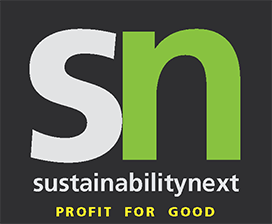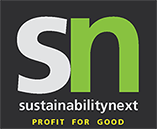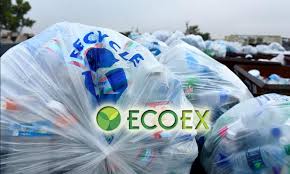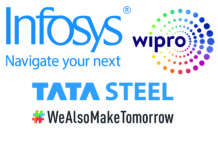EcoEx, a start-up in the plastic waste management sector, launched India’s first digital marketplace in February 2021 to facilitate exchange of plastic credit certificates and strengthen the plastic recycling infrastructure. It provides a transparent trading platform where members can trade plastic credits. It lets members use the power of the marketplace to gain access to real time prices.
As per the Uniform Framework for Extended Producer Responsibility (EPR, under Plastic Waste Management Rules 2016) released by Ministry of Environment, Forest and Climate Change, plastic producers, importers and brand owners (PIBOs) that use plastic for packaging are accountable for managing the end waste.
The revised EPR draft guidelines now allow PIBOs to meet their compliance targets by buying ‘plastic credits’ from accredited companies that recycle packaging or co-process the plastic packaging waste.
EcoEx brings together all the players in the plastic waste ecosystem to transparently trade plastic credit certificates. This model has three benefits: first, it ensures that plastic waste EPR compliance is met by brands in the most effective manner; second, it ensures that the plastic waste is ethically collected, transported and put to end of life and third, it incentives recyclers by giving them the monetary benefit for the recycled quantity and co-processors by helping them realise a better price.
According to a study by Un-Plastic Collective (co-founded by the Confederation of Indian Industry, United Nations Environment Program and WWF-India), India generates 9.46 million tons of plastic waste annually of which nearly 40% remains uncollected. A large quantity of this waste is ending up in landfills and oceans.
Mr Nimit Aggarwal, Founder, EcoEx said, “The added advantage of recycling plastic is that it emits lesser CO2 as compared to producing virgin plastic. EcoEx being pro-recycling ensures that maximum plastic is collected from the environment. This in turn helps save marine life by ensuring lesser plastic being dumped into oceans.”
EcoEx aims to streamline the unorganized recycling sector by educating recyclers about the benefits that can be availed by selling plastic credit certifications through a formal channel.
The EcoEx technology platform is supported by NCDEX e-markets Limited, the leading National Spot Exchange in India. It works with domain experts and offers trading platforms for trading in a host of commodities. These trading platforms combine technological efficiency and market-friendly trading features in a transparent atmosphere to make trading a rich and rewarding experience. Through auto market correction on its portal and direct exchange of credits EcoEx ensures that the cost benefits are derived by all parties.
Excerpts of SN interview with Mr Nimit Aggarwal, founder, EcoEx
What is EcoEx and how does the platform work
EcoEx is a unique digital marketplace that facilitates the exchange of plastic credit certificates between producers, importers, brand owners (PIBOs) and recyclers. The Plastic credit certificate is a bonafied document which ensures that the particular quantity of plastic has been recovered, channelized and disposed (either recycled or co-processed) as per Plastic waste management rules 2016 and further amendments.
Through this marketplace, PIBOs purchase plastic credit certificates that signifies the amount of plastic waste they are getting recycled/co-processed through an accredited co-processors or recyclers. Digital documentation of the entire process of recovery, transportation and disposal (recycling or coprocessing) of the post-consumer plastic waste ensures transparency and ethical handling of waste. A plastic credit certificate (PCC) is also used by brand owners to authenticate the fulfillment of their Extended Producers Responsibility (EPR). Through this digital ecosystem, EcoEx makes the process of buying and selling plastic credit certificates (PCC) quick, secure & equitable.
Your background and work experience in the plastic waste management sector
I come with more than 10 years of experience from leading organizations (BLS Ecotech) working towards sustainable solutions, plastic waste management and PET plastic waste. Hailing from a family background that is well versed with plastic waste management in last 70 years, I use an eco-minded approach that aligns with UNDP Sustainable Development Goals and have also consulted numerous foreign recycling organizations with their planning and business strategy.
As an alumni of Indian School of Business and a member of the board of FICCI Youth Leader Committee, I believe that youth have immense potential to contribute to issues that are centric to the environment and to the country. With this belief, I founded EcoEx, a first of its kind digital platform for stakeholders of the plastic waste management value chain to undertake secured and mutual beneficial plastic credit certificate transactions
How many recyclers and brand owners are using your platform
Since the inception of EcoEx, we have had around 30 major players onboarded to trade plastic credits
How much plastic waste has EcoEx recycled till now
Under the plastic credit model, if a producer is purchasing 1 plastic credit from a recycler, it means that one kg plastic worth of recycling has taken place through the EcoEx platform. In just five months, EcoEx, has closed recycling projects of more than 2000 metric tonnes (20,00,000 kgs) of plastic waste. This comprises of converting waste from Delhi, Maharashtra, Haryana, Rajasthan, Tamil Nadu, Telangana, Andhra Pradesh, Karnataka, and Bihar.
What is the market size that EcoEx will capture in this year?
It is our goal to capture 10% of the total EPR market (Rs.3,000 crore) in 2021-22.
How does EcoEx stand out from other waste management digital platforms?
A plastic credit model is envisaged where a producer is not required to recycle their own packaging, but to ensure that an equivalent amount of packaging waste has been recovered and recycled to meet their obligation. However, producers are mandated to acquire evidence of recycling or recovery from properly accredited processors [recyclers, W2E plant operators, cement co-processors, users utilizing plastic in road] or exporters. The producers can exchange credits from processors that have been specifically accredited for this purpose and through proper registration at the EPR portal and all this has been made possible in a digital platform.
EcoEx has very stringent requirements while onboarding any stakeholder. We take all required documentary proofs as per PWM rules to ensure the authenticity and accreditation of all the stakeholders and the work they do. We have our inhouse moderation team that evaluates the documentation with scrutiny of highest degree. Once the recycler is accredited by the government, EcoEx cannot refute the given consents by the law of the land.
What are your goals for 2021?
We at EcoEx will be targeting recovery, channelization and disposal (recycling, W2E, W2O, road construction Etc.) of 1 lakh metric tonnes of post-consumer plastic waste. We will be helping more than 50 brands to neutralize their plastic footprints. We also understand that as EcoEx, we have a high social obligation hence we will be targeting more than 100 small level regional brands and aware them to start fulfilling EPR for making this world better to live.
Can the plastic credit model solve India’s plastic waste management problem?
Plastic waste management ecosystem is a community of multiple stakeholders. The aim will only be achieved when all stakeholders will fulfill their responsibility.
Brands has been envisaged as a stakeholder who has the burden of financing this whole ecosystem. The plastic credit model will help the fund to flow in the right hands. The incentive scheme to other stakeholder will eventually make the whole ecosystem sustainable.
The plastic credit model is seen as an innovative recycling program that has the potential to overcome institutional, infrastructural as well as legislative challenges and accelerate recycling practices across the country.
Can you please share the market size of the plastic waste management industry?
It is estimated that the waste management market in India will reach around $ 13.62 billion by 2025 while the plastic recycling market in India is estimated to grow at a rate of 6.5 % to attain a market size of $ 53.72 billion by the end of 2023.
How much waste is the unorganised sector recycling yearly?
The Central Pollution Control Board reported that plastic waste on an average account for 6.92 per cent of municipal solid waste. The informal sector plays an important role in the management of plastics. The recycling rate of plastics in India is expected to be around 60 per cent, though 94 per cent of plastics that we use are of thermoset category and can be recycled.
Experts also say that recycling has the potential to create six times more jobs and generate around Rs.14 lakh crore of additional cost savings by 2030, which is approximately 11 per cent of India’s annual GDP.
(Source: Environment and Waste Management Division in TERI)
https://www.thehindu.com/brandhub/plastic-recycling-the-only-answer-to-plastic-pollution/article30783220.ece
https://www.thehindubusinessline.com/opinion/manage-plastic-waste-effectively/article32864516.ece
How is plastic credit model better than the existing waste management models in India?
The plastic credit model provides enforcement of extended producer responsibility on all PIBOs (Plastic producers, Importers and Brand Owners). Inability to comply with this obligation may have an immediate economic impact on the companies as authorities may cancel their consent to operate. In short, a company that manufactures and sells any product in plastic would need to fulfill its EPR obligations on monthly basis. Otherwise, they will be unable to produce the product they are selling. In a way, it promises compliance on part of producers which other existing models do not.
How has this model worked anywhere else in the world?
The Ministry of Environment, Forest and Climate Change (MoEFCC) notified Plastic Waste Management Rules, 2016 on 18th March 2016 and as per the rules, the generators of waste have been mandated to take steps to minimize generation of plastic waste, not to litter the plastic waste, ensure segregated storage of waste at source and handover segregated waste to local bodies or agencies authorised by the local bodies.
The rules also mandate the responsibilities of local bodies, gram panchayats, waste generators, retailers, and street vendors to manage plastic waste. Furthermore, MoEFCC then released the draft Uniform Framework for Extended Producer Responsibility (Under Plastic Waste Management Rules 2016) on June 26, 2020.
The draft rules offer three options to producers: pay a fee into a central corpus that would be spent towards managing the waste; buy credits from a system that would be established to offset the plastic waste they generate; or participate in and pay for establishing producer responsibility organisations (PROs) to collect and manage post-consumer plastic waste.
The draft rules propose to give manufacturers five years to achieve waste management targets, starting with 30% and moving up to 90% in the fifth year after the rules are notified. All stakeholders involved in the waste management process – producers, civic bodies, collectors, recyclers, etc. – would be registered with a new national registry through an online portal. These guidelines in a way, can pave the right direction for India’s plastic waste management issues provided it is timely implemented with willingness.
At EcoEx, it is our strong belief that the plastic credit model has the potential to minimize the plastic crisis in India. It is the only credible model that can be implemented on a large scale without compromising on the EPR policy while helping both the stakeholders, i.e PIBOs and recyclers, to focus on their core businesses rather than investing money and time elsewhere.








